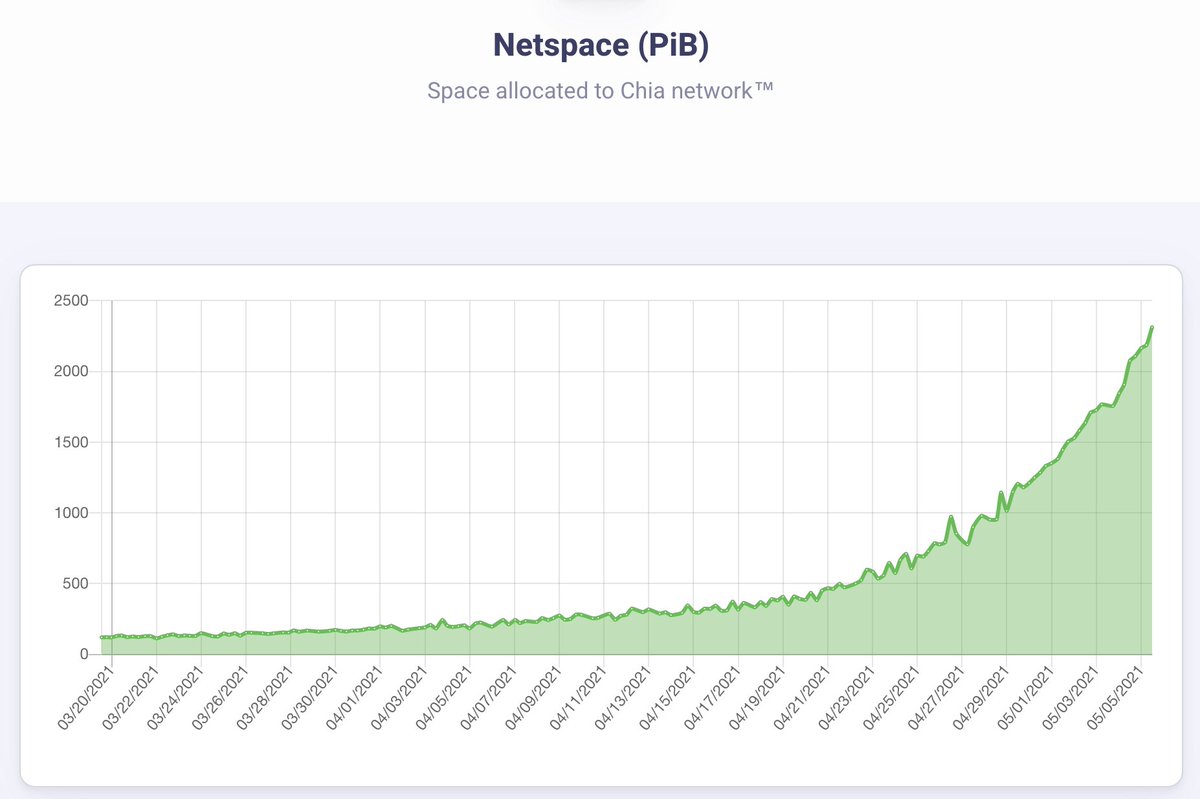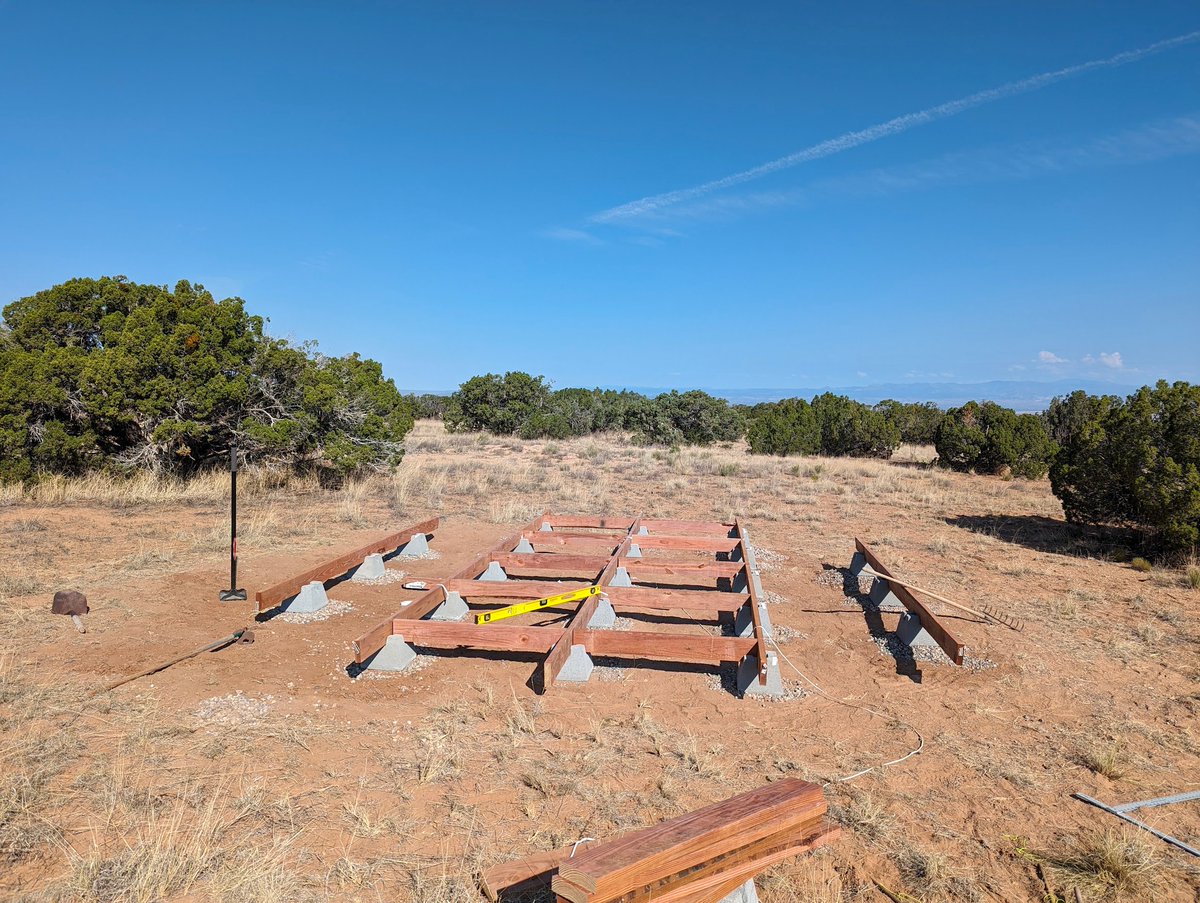Chia storage use is very much on the exponential growth curve right now, and I'm curious when shortages will start being felt in US consumer channels. 

The total amount of hard drive storage is massive, but the number assigned to retail channels is not, and it is hard to increase. This is doubly true for the high-end SSDs that chia farmers favor for plotting (that is, creating new bingo squares)
What we really need to make the cryptocurrency revolution complete is a popular new coin that requires massive amounts of RAM. Then all components of homemade PCs will be equally unaffordable, and balance will have been restored
Kudos to Bram Cohen and team for inventing a form of Lisp that massively inconveniences anyone who needs to buy a hard drive in the next five years. This is a huge leap forward for Lisp, which for decades had only caused pain to the people who used it
(For those unfamiliar with chia, it has two big resource consuming steps. The process of making new bingo cards requires NVMe SSDs, while the cards are stored on regular hard drives. Bingo card creation is the bottleneck, so the SSDs are the most endangered species of storage)
Cryptocurrency is an ingenious technique for converting concentrated wealth into widespread shortages, ransomware, and carbon dioxide. Whoever figures out how to run it in reverse will have their statue in every public square
Updated chart of Chia disk use, which just crossed 6 exabytes. We're one Elon Musk tweet away from no one being able to afford a high-performance SSD ever again 

Tom's Hardware has gone into detail on some of the Chia induced price spikes and high-capacity HDD shortages. But the real pain is probably in fast SSDs, since you need those to create the Bram Cohen Bingo™ cards to fill the big hard drives with tomshardware.com/news/analysis-…
The fact that 1/3 of Cohen's new "decentralized" cryptocurrency is already controlled by a Chinese pool that requires users to install custom software is the cherry on top. Of course, they're working on adding more software to re-decentralize. Code is the solution to all problems 

The appeal of cryptocurrency to a certain class of mind is that it purports to be a technical solution to a social problem: How do you pay strangers without trusting anyone? But it shows that you can't escape social problems with technology, you can only dig yourself in deeper
The attempt reminds me a lot of early attempts to formalize mathematics—that if you could put everything on a basis that you could prove theorems about, and had enough expressive power, you'd eventually get arrive at a "God's eye view" of Truth and Beauty and so on.
The discovery that this is not possible even in principle was a pivotal moment in human thought. There's a similar (if less lofty) principle at play here. Any interaction between people is irredeemably and ineradicably social, no matter how much code you slather on top of it
The problem with cryptocurrency, though, is that it has that false promise. It seduces people who are exceptionally brilliant but (for whatever reason) uncomfortable with the messiness of social interaction and human institutions in general. And it attracts raging sociopaths.
The usual mantra is that technology is amoral, and we twist it to our human ends, for good or bad. But cryptocurrency is a good candidate for tech that is inherently evil. It's an intellectual island of the Lotus Eaters for smart minds, and you can also do lots of crimes with it
Anyway, keep an eye out for Pinboard FunBuxx! You'll want to get in on the ground floor of this one
The internet-mediated diversion of extremely smart people into dead-end basins of thought like hyperintelligence or cryptocurrency is something I post a lot about on this site, rather than making productive use of my time
• • •
Missing some Tweet in this thread? You can try to
force a refresh










